Deck 4: Applications of Differentiation
Question
Question
Question
Question
Question
Question
Question
Question
Question
Question
Question
Question
Question
Question
Question
Question
Question
Question
Question
Question
Question
Question
Question
Question
Question
Question
Question
Question
Question
Question
Question
Question
Question
Question
Question
Question
Question
Question
Question
Question
Question
Question
Question
Question
Question
Question
Question
Question
Question
Question
Question
Question
Question
Question
Question
Question
Question
Question
Question
Question
Question
Question
Question
Question
Question
Question
Question
Question
Question
Question
Question
Question
Question
Question
Question
Question
Question
Question
Question
Question

Unlock Deck
Sign up to unlock the cards in this deck!
Unlock Deck
Unlock Deck
1/147
Play
Full screen (f)
Deck 4: Applications of Differentiation
1
For time  ,a particle moves along the x-axis with position given by
,a particle moves along the x-axis with position given by  .During what time intervals is the speed of the particle increasing?
.During what time intervals is the speed of the particle increasing?
A) < t ≤ 10 only
< t ≤ 10 only
B)0 ≤ t < 1 and < t <
< t <

C)0 ≤ t < 1 and < t ≤ 10
< t ≤ 10
D)1 < t < and
and
 < t ≤ 10
< t ≤ 10
 ,a particle moves along the x-axis with position given by
,a particle moves along the x-axis with position given by  .During what time intervals is the speed of the particle increasing?
.During what time intervals is the speed of the particle increasing? A)
 < t ≤ 10 only
< t ≤ 10 onlyB)0 ≤ t < 1 and
 < t <
< t <
C)0 ≤ t < 1 and
 < t ≤ 10
< t ≤ 10D)1 < t <
 and
and < t ≤ 10
< t ≤ 100 ≤ t < 1 and  < t ≤ 10
< t ≤ 10
 < t ≤ 10
< t ≤ 10 2
For the function  ,how many of the inflection points of the function are also extrema?
,how many of the inflection points of the function are also extrema?
A)3
B)2
C)1
D)None
 ,how many of the inflection points of the function are also extrema?
,how many of the inflection points of the function are also extrema? A)3
B)2
C)1
D)None
None
3
Let  be defined as
be defined as  in the open interval (-3,3).Determine the coordinate(s)of the relative maxima of
in the open interval (-3,3).Determine the coordinate(s)of the relative maxima of  in the open interval.Explain your reasoning.
in the open interval.Explain your reasoning.
 be defined as
be defined as  in the open interval (-3,3).Determine the coordinate(s)of the relative maxima of
in the open interval (-3,3).Determine the coordinate(s)of the relative maxima of  in the open interval.Explain your reasoning.
in the open interval.Explain your reasoning.For  ,the relative maximum will occur at the point (-1,8).All values of the new function
,the relative maximum will occur at the point (-1,8).All values of the new function  are made positive with the application of the absolute value to
are made positive with the application of the absolute value to  ,and the relative minimum of
,and the relative minimum of  becomes a relative maximum for
becomes a relative maximum for  .
.
 ,the relative maximum will occur at the point (-1,8).All values of the new function
,the relative maximum will occur at the point (-1,8).All values of the new function  are made positive with the application of the absolute value to
are made positive with the application of the absolute value to  ,and the relative minimum of
,and the relative minimum of  becomes a relative maximum for
becomes a relative maximum for  .
. 4
Let M represent the absolute maximum of f(x)in an interval. Let R represent a root of f(x)in the given interval.
Let m represent the absolute minimum of f(x)in the interval.
If ,then which of the following is true over the closed interval
,then which of the following is true over the closed interval  ?
?
A)M and R occur at a critical point and m occurs at an endpoint.
B)M and m occur at critical points.
C)M,m,and R occur at endpoints of the given interval.
D)M occurs at an endpoint,whereas m and R occur at a critical point.
Let m represent the absolute minimum of f(x)in the interval.
If
 ,then which of the following is true over the closed interval
,then which of the following is true over the closed interval  ?
?
A)M and R occur at a critical point and m occurs at an endpoint.
B)M and m occur at critical points.
C)M,m,and R occur at endpoints of the given interval.
D)M occurs at an endpoint,whereas m and R occur at a critical point.

Unlock Deck
Unlock for access to all 147 flashcards in this deck.
Unlock Deck
k this deck
5
Find all values of x for which  is concave down.Explain your reasoning.
is concave down.Explain your reasoning.
 is concave down.Explain your reasoning.
is concave down.Explain your reasoning.
Unlock Deck
Unlock for access to all 147 flashcards in this deck.
Unlock Deck
k this deck
6
The function  is defined as
is defined as  on the open interval (-3,3)as illustrated in the graph shown.
on the open interval (-3,3)as illustrated in the graph shown.
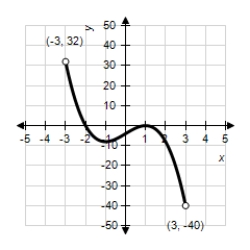
Determine the coordinates of the relative extrema of in the open interval (-3,3).
in the open interval (-3,3).
 is defined as
is defined as  on the open interval (-3,3)as illustrated in the graph shown.
on the open interval (-3,3)as illustrated in the graph shown.

Determine the coordinates of the relative extrema of
 in the open interval (-3,3).
in the open interval (-3,3).
Unlock Deck
Unlock for access to all 147 flashcards in this deck.
Unlock Deck
k this deck
7
The points of inflection for  are at
are at  and
and  .Which of the following is (are)true?
.Which of the following is (are)true?
I.The points of inflection for are at
are at  and
and  .
.
II.The points of inflection for are at
are at  and
and  .
.
III.The points of inflection for are at
are at  and
and  .
.
A)I only
B)II only
C)I and II only
D)I and III only
 are at
are at  and
and  .Which of the following is (are)true?
.Which of the following is (are)true? I.The points of inflection for
 are at
are at  and
and  .
.II.The points of inflection for
 are at
are at  and
and  .
.III.The points of inflection for
 are at
are at  and
and  .
.
A)I only
B)II only
C)I and II only
D)I and III only

Unlock Deck
Unlock for access to all 147 flashcards in this deck.
Unlock Deck
k this deck
8
The graph of f ′(x)is given below for  .On which interval(s)is the function f(x)both increasing and concave up?
.On which interval(s)is the function f(x)both increasing and concave up? 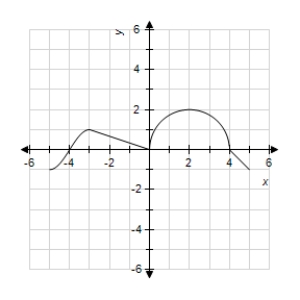
A)
B)
C)
D)
 .On which interval(s)is the function f(x)both increasing and concave up?
.On which interval(s)is the function f(x)both increasing and concave up? 
A)

B)

C)

D)


Unlock Deck
Unlock for access to all 147 flashcards in this deck.
Unlock Deck
k this deck
9
A rectangle is drawn in the first quadrant so that it has two adjacent sides on the coordinate axes and one vertex on the curve  .Find the x coordinate of the vertex for which the area of the rectangle is a maximum.
.Find the x coordinate of the vertex for which the area of the rectangle is a maximum.
A)
B)
C)
D)
 .Find the x coordinate of the vertex for which the area of the rectangle is a maximum.
.Find the x coordinate of the vertex for which the area of the rectangle is a maximum. A)

B)

C)

D)


Unlock Deck
Unlock for access to all 147 flashcards in this deck.
Unlock Deck
k this deck
10
Given the following conditions for  ,which graph best illustrates
,which graph best illustrates  ?
?  : The domain of the function is the real numbers,but
: The domain of the function is the real numbers,but  ;
;
 ;
;  ;
;  .
.
 for all x where
for all x where  ,and
,and  does not exist at
does not exist at  .
.  for
for  ,
,  for
for  ,and
,and  does not exist at
does not exist at  .
.
A)
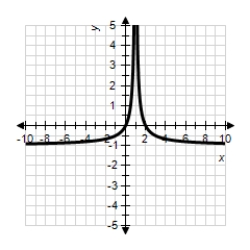
B)
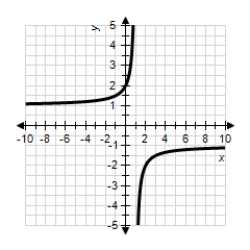
C)
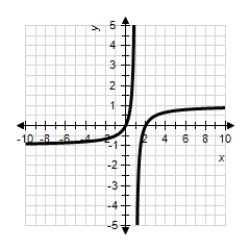
D)
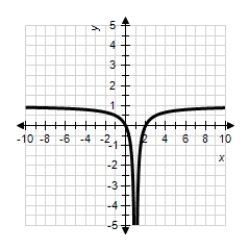
 ,which graph best illustrates
,which graph best illustrates  ?
?  : The domain of the function is the real numbers,but
: The domain of the function is the real numbers,but  ;
;
 ;
;  ;
;  .
.
 for all x where
for all x where  ,and
,and  does not exist at
does not exist at  .
.  for
for  ,
,  for
for  ,and
,and  does not exist at
does not exist at  .
.
A)

B)

C)

D)


Unlock Deck
Unlock for access to all 147 flashcards in this deck.
Unlock Deck
k this deck
11
A calculator may be used for the following question.Let  be a function such that
be a function such that  .In the interval
.In the interval  ,the graph of
,the graph of  has a point of inflection nearest
has a point of inflection nearest  .
.
A)0.37
B)1.233
C)2.141
D)2.268
 be a function such that
be a function such that  .In the interval
.In the interval  ,the graph of
,the graph of  has a point of inflection nearest
has a point of inflection nearest  .
. A)0.37
B)1.233
C)2.141
D)2.268

Unlock Deck
Unlock for access to all 147 flashcards in this deck.
Unlock Deck
k this deck
12
If  ,then on which interval(s)is the continuous function f(x)increasing?
,then on which interval(s)is the continuous function f(x)increasing?
A)
B)
C)
D)
 ,then on which interval(s)is the continuous function f(x)increasing?
,then on which interval(s)is the continuous function f(x)increasing? A)

B)

C)

D)


Unlock Deck
Unlock for access to all 147 flashcards in this deck.
Unlock Deck
k this deck
13
For time  ,a particle moves along the x-axis with position given by
,a particle moves along the x-axis with position given by  .What is the position of the particle when it is farthest to the left?
.What is the position of the particle when it is farthest to the left?
A)
B)-11
C)-16
D)
 ,a particle moves along the x-axis with position given by
,a particle moves along the x-axis with position given by  .What is the position of the particle when it is farthest to the left?
.What is the position of the particle when it is farthest to the left? A)

B)-11
C)-16
D)


Unlock Deck
Unlock for access to all 147 flashcards in this deck.
Unlock Deck
k this deck
14
A farmer has 225 yards of fencing to form two identical rectangular pens and a third pen that is twice as long as the other two pens,as shown in the diagram below.All three pens have the same width,x.Which value of y produces the maximum total fenced area?
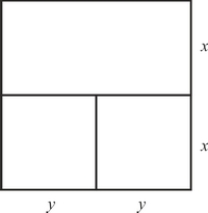
A)
B)15
C)
D)

A)

B)15
C)

D)


Unlock Deck
Unlock for access to all 147 flashcards in this deck.
Unlock Deck
k this deck
15
Find the equation of the tangent line T to the graph of  at the given point
at the given point  .
.
A)
B)
C)
D)
E)
 at the given point
at the given point  .
. A)

B)

C)

D)

E)


Unlock Deck
Unlock for access to all 147 flashcards in this deck.
Unlock Deck
k this deck
16
Find the equation of the tangent line T to the graph of  at the given point
at the given point  .
.
A)
B)
C)
D)
E)
 at the given point
at the given point  .
. A)

B)

C)

D)

E)


Unlock Deck
Unlock for access to all 147 flashcards in this deck.
Unlock Deck
k this deck
17
For what values of x is  not defined? Explain your reasoning.
not defined? Explain your reasoning.
 not defined? Explain your reasoning.
not defined? Explain your reasoning.
Unlock Deck
Unlock for access to all 147 flashcards in this deck.
Unlock Deck
k this deck
18
What value of c in the open interval (0,16)satisfies the Mean Value Theorem for  ?
?
A)0
B)
C)
D)4
 ?
? A)0
B)

C)

D)4

Unlock Deck
Unlock for access to all 147 flashcards in this deck.
Unlock Deck
k this deck
19
The position of an object moving along a straight line for  is given by
is given by  ,and the position of a second object moving along the same line is given by
,and the position of a second object moving along the same line is given by  .If both objects begin at
.If both objects begin at  ,at what time is the distance between the objects a minimum?
,at what time is the distance between the objects a minimum?
A)2
B)
C)
D)0
 is given by
is given by  ,and the position of a second object moving along the same line is given by
,and the position of a second object moving along the same line is given by  .If both objects begin at
.If both objects begin at  ,at what time is the distance between the objects a minimum?
,at what time is the distance between the objects a minimum? A)2
B)

C)

D)0

Unlock Deck
Unlock for access to all 147 flashcards in this deck.
Unlock Deck
k this deck
20
Based on the graph of  pictured above,how many points of inflection exist for the twice differentiable function
pictured above,how many points of inflection exist for the twice differentiable function  on the interval
on the interval  ?
?
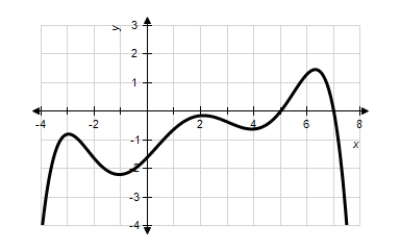
A)4
B)3
C)2
D)1
 pictured above,how many points of inflection exist for the twice differentiable function
pictured above,how many points of inflection exist for the twice differentiable function  on the interval
on the interval  ?
?

A)4
B)3
C)2
D)1

Unlock Deck
Unlock for access to all 147 flashcards in this deck.
Unlock Deck
k this deck
21
Compare  and
and  for
for  at
at  with
with  Give your answers to four decimal places.
Give your answers to four decimal places.
A)
B)
C)
D)
E)
 and
and  for
for  at
at  with
with  Give your answers to four decimal places.
Give your answers to four decimal places. A)

B)

C)

D)

E)


Unlock Deck
Unlock for access to all 147 flashcards in this deck.
Unlock Deck
k this deck
22
The measurement of the side of a square floor tile is 22 inches,with a possible error of  inch.Use differentials to approximate the possible propagated error in computing the area of the square.
inch.Use differentials to approximate the possible propagated error in computing the area of the square.
A) square inches
square inches
B) square inches
square inches
C) square inches
square inches
D) square inches
square inches
E) square inches
square inches
 inch.Use differentials to approximate the possible propagated error in computing the area of the square.
inch.Use differentials to approximate the possible propagated error in computing the area of the square. A)
 square inches
square inchesB)
 square inches
square inchesC)
 square inches
square inchesD)
 square inches
square inchesE)
 square inches
square inches
Unlock Deck
Unlock for access to all 147 flashcards in this deck.
Unlock Deck
k this deck
23
Find the differential  of the function
of the function  .
.
A)
B)
C)
D)
E)
 of the function
of the function  .
.A)

B)

C)

D)

E)


Unlock Deck
Unlock for access to all 147 flashcards in this deck.
Unlock Deck
k this deck
24
The radius of a spherical balloon is measured to be 9 inches,with a possible error of 0.02 inch.Use differentials to approximate the maximum possible error in calculating the volume of the sphere.Round your answer to two decimal places.
A)±10.18 cubic inches
B)±5.65 cubic inches
C)±30.54 cubic inches
D)±20.36 cubic inches
E)±4.52 cubic inches
A)±10.18 cubic inches
B)±5.65 cubic inches
C)±30.54 cubic inches
D)±20.36 cubic inches
E)±4.52 cubic inches

Unlock Deck
Unlock for access to all 147 flashcards in this deck.
Unlock Deck
k this deck
25
Use differentials to approximate the value of  .Round your answer to four decimal places.
.Round your answer to four decimal places.
A)1.8650
B)1.8750
C)1.9050
D)1.8850
E)1.8950
 .Round your answer to four decimal places.
.Round your answer to four decimal places. A)1.8650
B)1.8750
C)1.9050
D)1.8850
E)1.8950

Unlock Deck
Unlock for access to all 147 flashcards in this deck.
Unlock Deck
k this deck
26
Find the length and width of a rectangle that has an area of 1,152 square feet and whose perimeter is a minimum.
A) feet;
feet;  feet
feet
B) feet;
feet;  feet
feet
C) feet
feet
D) feet;
feet;  feet
feet
E) feet;
feet;  feet
feet
A)
 feet;
feet;  feet
feetB)
 feet;
feet;  feet
feetC)
 feet
feetD)
 feet;
feet;  feet
feetE)
 feet;
feet;  feet
feet
Unlock Deck
Unlock for access to all 147 flashcards in this deck.
Unlock Deck
k this deck
27
The radius of a spherical balloon is measured to be 7 inches,with a possible error of 0.03 inch.Use differentials to approximate the maximum possible error in calculating the surface area of the sphere.Round your answer to two decimal places.
A)±6.6 square inches
B)±9.24 square inches
C)±27.71 square inches
D)±18.47 square inches
E)±5.28 square inches
A)±6.6 square inches
B)±9.24 square inches
C)±27.71 square inches
D)±18.47 square inches
E)±5.28 square inches

Unlock Deck
Unlock for access to all 147 flashcards in this deck.
Unlock Deck
k this deck
28
Compare  and
and  for
for  at
at  with
with  Give your answers to four decimal places.
Give your answers to four decimal places.
A)
B)
C)
D)
E)
 and
and  for
for  at
at  with
with  Give your answers to four decimal places.
Give your answers to four decimal places. A)

B)

C)

D)

E)


Unlock Deck
Unlock for access to all 147 flashcards in this deck.
Unlock Deck
k this deck
29
Find the point on the graph of the function  that is closest to the point
that is closest to the point  .
.
A)
B)
C)
D)
E)
 that is closest to the point
that is closest to the point  .
. A)

B)

C)

D)

E)


Unlock Deck
Unlock for access to all 147 flashcards in this deck.
Unlock Deck
k this deck
30
The measurements of the base and altitude of a triangle are found to be 42 and 21 centimeters.The possible error in each measurement is 0.25 centimeter.Use differentials to estimate the propagated error in computing the area of the triangle.Round your answer to four decimal places.
A)±8.6625 square centimeters
B)±7.0875 square centimeters
C)±7.875 square centimeters
D)±9.0563 square centimeters
E)±9.45 square centimeters
A)±8.6625 square centimeters
B)±7.0875 square centimeters
C)±7.875 square centimeters
D)±9.0563 square centimeters
E)±9.45 square centimeters

Unlock Deck
Unlock for access to all 147 flashcards in this deck.
Unlock Deck
k this deck
31
Use differentials to approximate the value of  .Round your answer to four decimal places.
.Round your answer to four decimal places.
A)3.0470
B)3.0270
C)3.0170
D)3.0370
E)3.0570
 .Round your answer to four decimal places.
.Round your answer to four decimal places. A)3.0470
B)3.0270
C)3.0170
D)3.0370
E)3.0570

Unlock Deck
Unlock for access to all 147 flashcards in this deck.
Unlock Deck
k this deck
32
The range R of a projectile is  where ν0 is the initial velocity in feet per second and θ is the angle of elevation.If ν0 = 2300 feet per second and θ is changed from 13° to 14° use differentials to approximate the change in the range.Round your answer to the nearest integer.
where ν0 is the initial velocity in feet per second and θ is the angle of elevation.If ν0 = 2300 feet per second and θ is changed from 13° to 14° use differentials to approximate the change in the range.Round your answer to the nearest integer.
A)2593 ft
B)4568 ft
C)5623 ft
D)2811 ft
E)5186 ft
 where ν0 is the initial velocity in feet per second and θ is the angle of elevation.If ν0 = 2300 feet per second and θ is changed from 13° to 14° use differentials to approximate the change in the range.Round your answer to the nearest integer.
where ν0 is the initial velocity in feet per second and θ is the angle of elevation.If ν0 = 2300 feet per second and θ is changed from 13° to 14° use differentials to approximate the change in the range.Round your answer to the nearest integer. A)2593 ft
B)4568 ft
C)5623 ft
D)2811 ft
E)5186 ft

Unlock Deck
Unlock for access to all 147 flashcards in this deck.
Unlock Deck
k this deck
33
The measurement of the radius of the end of a log is found to be 10 inches,with a possible error of  inch.Use differentials to approximate the possible propagated error in computing the area of the end of the log.
inch.Use differentials to approximate the possible propagated error in computing the area of the end of the log.
A)±12π square inches
B)±16π square inches
C)±5π square inches
D)±20π square inches
E)±8π square inches
 inch.Use differentials to approximate the possible propagated error in computing the area of the end of the log.
inch.Use differentials to approximate the possible propagated error in computing the area of the end of the log. A)±12π square inches
B)±16π square inches
C)±5π square inches
D)±20π square inches
E)±8π square inches

Unlock Deck
Unlock for access to all 147 flashcards in this deck.
Unlock Deck
k this deck
34
Find the point on the graph of the function  that is closest to the point
that is closest to the point  .Round all numerical values in your answer to four decimal places.
.Round all numerical values in your answer to four decimal places.
A)
B)
C)
D)
E)
 that is closest to the point
that is closest to the point  .Round all numerical values in your answer to four decimal places.
.Round all numerical values in your answer to four decimal places. A)

B)

C)

D)

E)


Unlock Deck
Unlock for access to all 147 flashcards in this deck.
Unlock Deck
k this deck
35
Find the differential  of the function
of the function  .
.
A)
B)
C)
D)
E)
 of the function
of the function  .
. A)

B)

C)

D)

E)


Unlock Deck
Unlock for access to all 147 flashcards in this deck.
Unlock Deck
k this deck
36
The total stopping distance T of a vehicle is  where T is in feet and x is the speed in miles per hour.Use differentials to approximate the percent change in total stopping distance as speed changes from x = 22 to x = 27 miles per hour.Round your answer to one decimal place.
where T is in feet and x is the speed in miles per hour.Use differentials to approximate the percent change in total stopping distance as speed changes from x = 22 to x = 27 miles per hour.Round your answer to one decimal place.
A)51.8%
B)22.1%
C)42.7%
D)78.0%
E)122.7%
 where T is in feet and x is the speed in miles per hour.Use differentials to approximate the percent change in total stopping distance as speed changes from x = 22 to x = 27 miles per hour.Round your answer to one decimal place.
where T is in feet and x is the speed in miles per hour.Use differentials to approximate the percent change in total stopping distance as speed changes from x = 22 to x = 27 miles per hour.Round your answer to one decimal place. A)51.8%
B)22.1%
C)42.7%
D)78.0%
E)122.7%

Unlock Deck
Unlock for access to all 147 flashcards in this deck.
Unlock Deck
k this deck
37
Find two positive numbers such that the sum of the first and twice the second is 96 and whose product is a maximum.
A)48 and 48
B)48 and 24
C)42 and 27
D)54 and 21
E)44 and 26
A)48 and 48
B)48 and 24
C)42 and 27
D)54 and 21
E)44 and 26

Unlock Deck
Unlock for access to all 147 flashcards in this deck.
Unlock Deck
k this deck
38
Find the differential  of the function
of the function  .
.
A)
B)
C)
D)
E)
 of the function
of the function  .
. A)

B)

C)

D)

E)


Unlock Deck
Unlock for access to all 147 flashcards in this deck.
Unlock Deck
k this deck
39
Find two positive numbers whose product is 186 and whose sum is a minimum.
A)
B)
C)
D)
E)
A)

B)

C)

D)

E)


Unlock Deck
Unlock for access to all 147 flashcards in this deck.
Unlock Deck
k this deck
40
Find the length and width of a rectangle that has perimeter 40 meters and a maximum area.
A)10 m;10 m.
B)14 m;7 m.
C)1 m;19 m.
D)11 m;9 m.
E)5 m;15 m.
A)10 m;10 m.
B)14 m;7 m.
C)1 m;19 m.
D)11 m;9 m.
E)5 m;15 m.

Unlock Deck
Unlock for access to all 147 flashcards in this deck.
Unlock Deck
k this deck
41
The graph of a function f is is shown below.Sketch the graph of the derivative  .
. 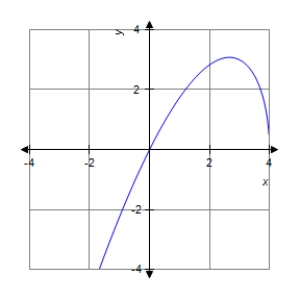
A)
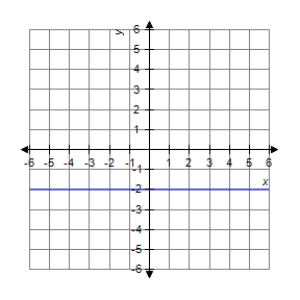
B)
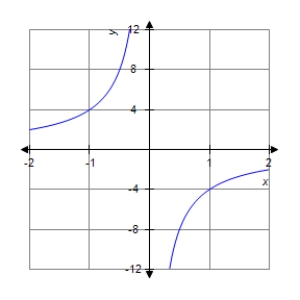
C)
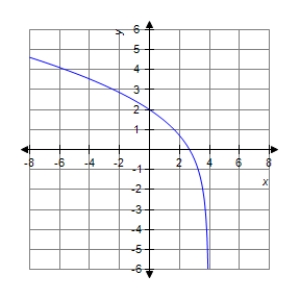
D)
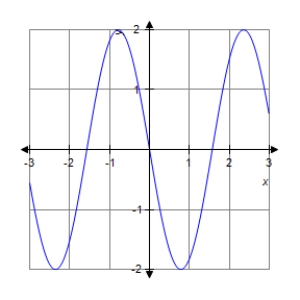
E)
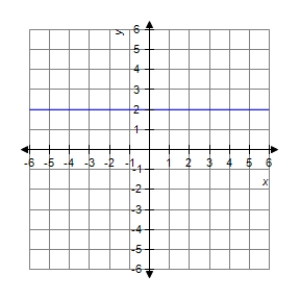
 .
. 
A)

B)

C)

D)

E)


Unlock Deck
Unlock for access to all 147 flashcards in this deck.
Unlock Deck
k this deck
42
Analyze and sketch a graph of the function  .
.
A)
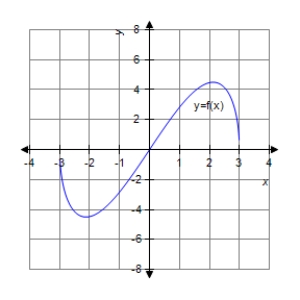
B)
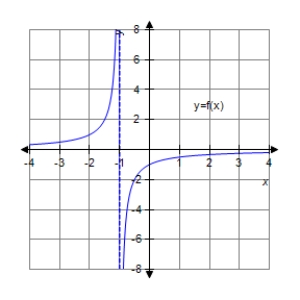
C)
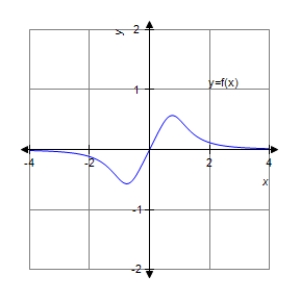
D)
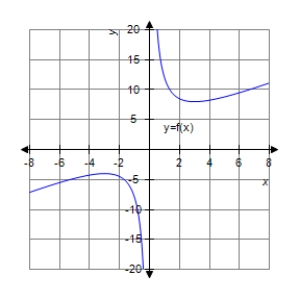
E)
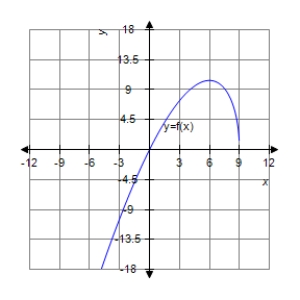
 .
. A)

B)

C)

D)

E)


Unlock Deck
Unlock for access to all 147 flashcards in this deck.
Unlock Deck
k this deck
43
Analyze and sketch a graph of the function  .
.
A)
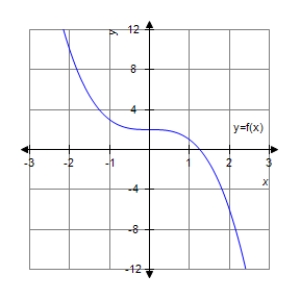
B)
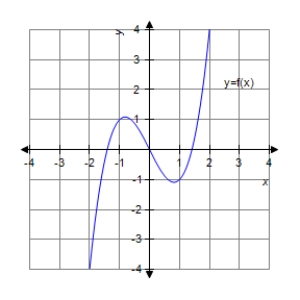
C)
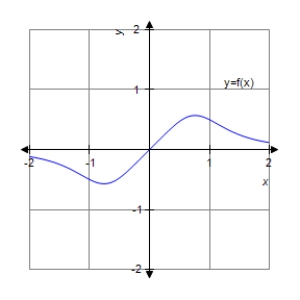
D)
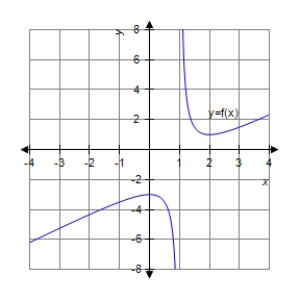
E)
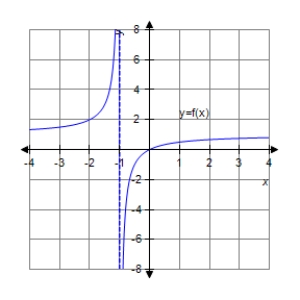
 .
. A)

B)

C)

D)

E)


Unlock Deck
Unlock for access to all 147 flashcards in this deck.
Unlock Deck
k this deck
44
The graph of a function f is is shown below.Sketch the graph of the derivative  .
. 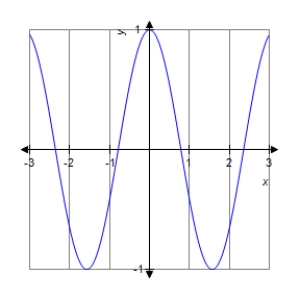
A)
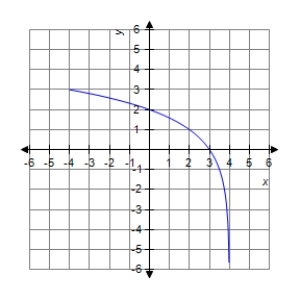
B)
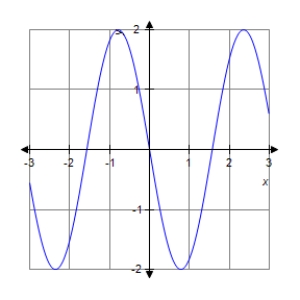
C)
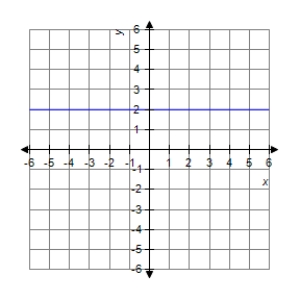
D)
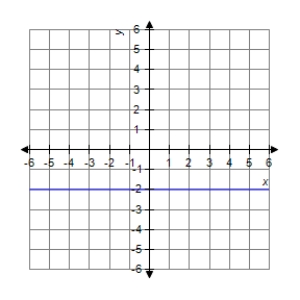
E)
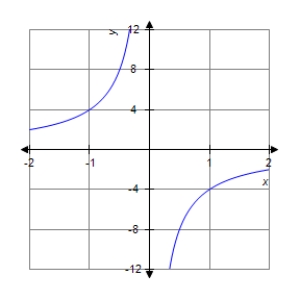
 .
. 
A)

B)

C)

D)

E)


Unlock Deck
Unlock for access to all 147 flashcards in this deck.
Unlock Deck
k this deck
45
A solid is formed by adjoining two hemispheres to the ends of a right circular cylinder.The total volume of the solid is 28 cubic centimeters.Find the radius,r,of the cylinder that produces the minimum surface area.Round your answer to two decimal places.
A) cm
cm
B) cm
cm
C) cm
cm
D) cm
cm
E) cm
cm
A)
 cm
cmB)
 cm
cmC)
 cm
cmD)
 cm
cmE)
 cm
cm
Unlock Deck
Unlock for access to all 147 flashcards in this deck.
Unlock Deck
k this deck
46
Determine the slant asymptote of the graph of  .
.
A)
B)
C)
D)
E)no slant asymptotes
 .
. A)

B)

C)

D)

E)no slant asymptotes

Unlock Deck
Unlock for access to all 147 flashcards in this deck.
Unlock Deck
k this deck
47
A Norman window is constructed by adjoining a semicircle to the top of an ordinary rectangular window (see figure).Find the dimensions of a Norman window of maximum area if the total perimeter is 38 feet. 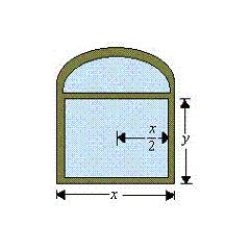
A) feet;
feet;  feet
feet
B) feet;
feet;  feet
feet
C) feet;
feet;  feet
feet
D) feet;
feet;  feet
feet
E) feet;
feet;  feet
feet

A)
 feet;
feet;  feet
feetB)
 feet;
feet;  feet
feetC)
 feet;
feet;  feet
feetD)
 feet;
feet;  feet
feetE)
 feet;
feet;  feet
feet
Unlock Deck
Unlock for access to all 147 flashcards in this deck.
Unlock Deck
k this deck
48
The sum of the perimeters of an equilateral triangle and a square is 8.Find the dimensions of the triangle and the square that produce a minimum total area.
A)side of square: ;side of triangle:
;side of triangle:

B)side of square: ;side of triangle:
;side of triangle:

C)side of square: ;side of triangle:
;side of triangle:

D)side of square: ;side of triangle:
;side of triangle:

E)side of square: ;side of triangle:
;side of triangle:

A)side of square:
 ;side of triangle:
;side of triangle:
B)side of square:
 ;side of triangle:
;side of triangle:
C)side of square:
 ;side of triangle:
;side of triangle:
D)side of square:
 ;side of triangle:
;side of triangle:
E)side of square:
 ;side of triangle:
;side of triangle:

Unlock Deck
Unlock for access to all 147 flashcards in this deck.
Unlock Deck
k this deck
49
The graph of a function f is is shown below.Sketch the graph of the derivative  .
. 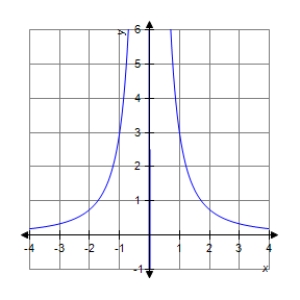
A)
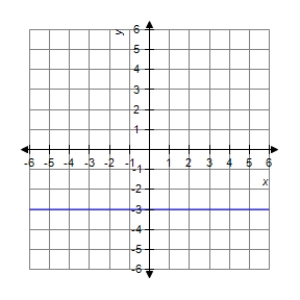
B)
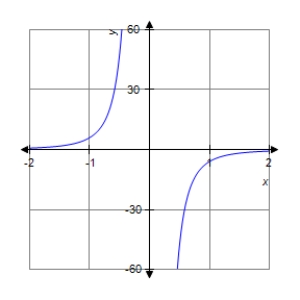
C)
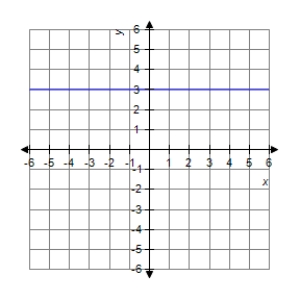
D)
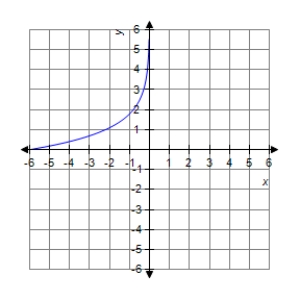
E)
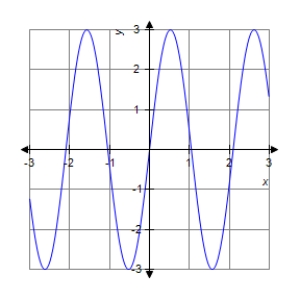
 .
. 
A)

B)

C)

D)

E)


Unlock Deck
Unlock for access to all 147 flashcards in this deck.
Unlock Deck
k this deck
50
Analyze and sketch a graph of the function  .
.
A)
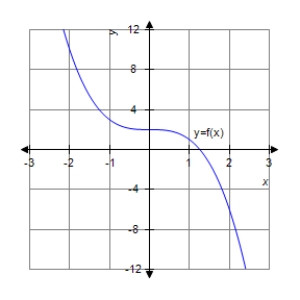
B)
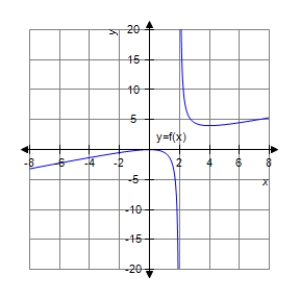
C)
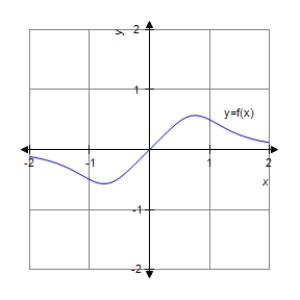
D)
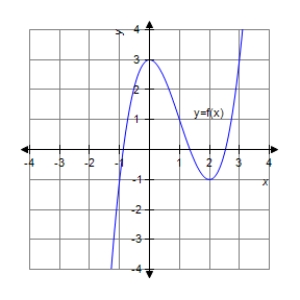
E)
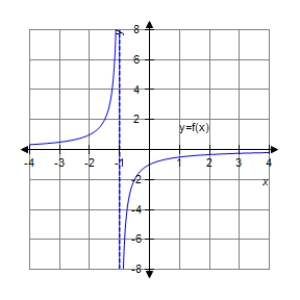
 .
. A)

B)

C)

D)

E)


Unlock Deck
Unlock for access to all 147 flashcards in this deck.
Unlock Deck
k this deck
51
Analyze and sketch a graph of the function  .
.
A)
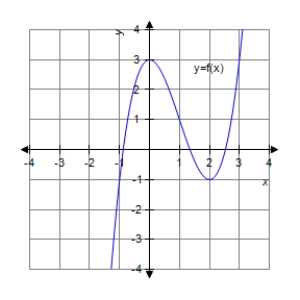
B)
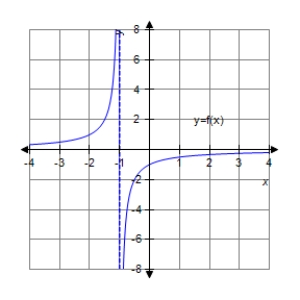
C)
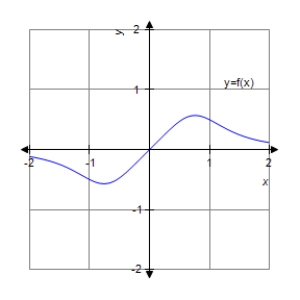
D)
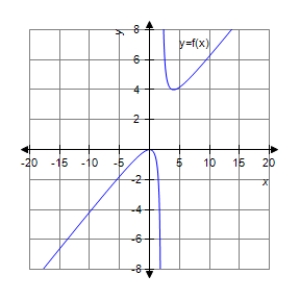
E)none of the above.
 .
. A)

B)

C)

D)

E)none of the above.

Unlock Deck
Unlock for access to all 147 flashcards in this deck.
Unlock Deck
k this deck
52
A rectangular page is to contain 196 square inches of print.The margins on each side are 1 inch.Find the dimensions of the page such that the least amount of paper is used.
A)17,17
B)29,29
C)18,18
D)15,15
E)16,16
A)17,17
B)29,29
C)18,18
D)15,15
E)16,16

Unlock Deck
Unlock for access to all 147 flashcards in this deck.
Unlock Deck
k this deck
53
Analyze and sketch a graph of the function  .
.
A)
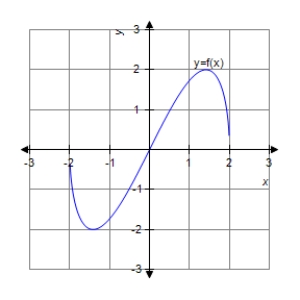
B)
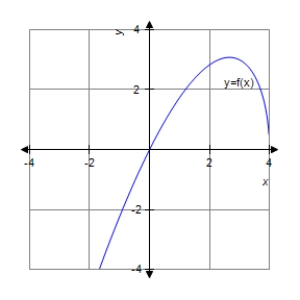
C)
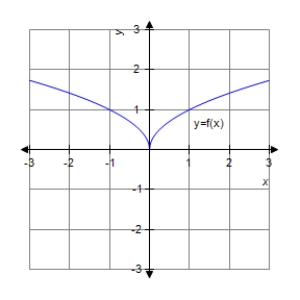
D)
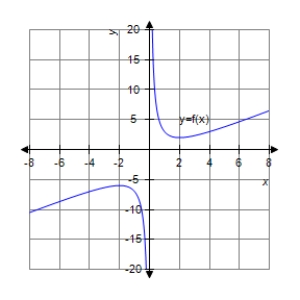
E)
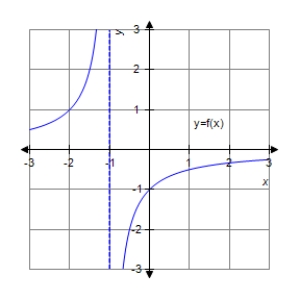
 .
. A)

B)

C)

D)

E)


Unlock Deck
Unlock for access to all 147 flashcards in this deck.
Unlock Deck
k this deck
54
Determine the dimensions of a rectangular solid (with a square base)with maximum volume if its surface area is 121 square meters.
A)Dimensions:
B)Dimensions:
C)Dimensions:
D)Dimensions:
E)Dimensions:
A)Dimensions:

B)Dimensions:

C)Dimensions:

D)Dimensions:

E)Dimensions:


Unlock Deck
Unlock for access to all 147 flashcards in this deck.
Unlock Deck
k this deck
55
Analyze and sketch a graph of the function  .
.
A)
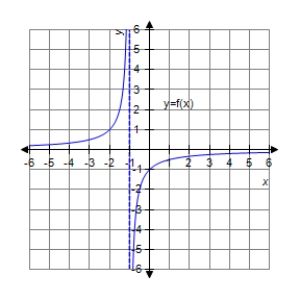
B)
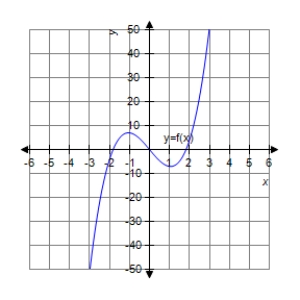
C)
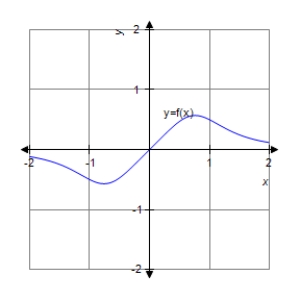
D)
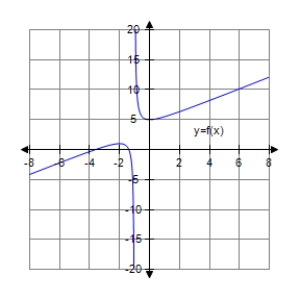
E)
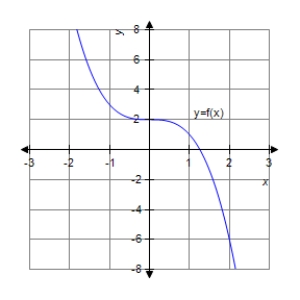
 .
. A)

B)

C)

D)

E)


Unlock Deck
Unlock for access to all 147 flashcards in this deck.
Unlock Deck
k this deck
56
A sector with central angle  is cut from a circle of radius 4 inches,and the edges of the sector are brought together to form a cone.Find the magnitude of
is cut from a circle of radius 4 inches,and the edges of the sector are brought together to form a cone.Find the magnitude of  such that the volume of the cone is a maximum.
such that the volume of the cone is a maximum.
A) radians
radians
B) radians
radians
C) radians
radians
D) radians
radians
E) radians
radians
 is cut from a circle of radius 4 inches,and the edges of the sector are brought together to form a cone.Find the magnitude of
is cut from a circle of radius 4 inches,and the edges of the sector are brought together to form a cone.Find the magnitude of  such that the volume of the cone is a maximum.
such that the volume of the cone is a maximum. A)
 radians
radiansB)
 radians
radiansC)
 radians
radiansD)
 radians
radiansE)
 radians
radians
Unlock Deck
Unlock for access to all 147 flashcards in this deck.
Unlock Deck
k this deck
57
On a given day,the flow rate F (cars per hour)on a congested roadway is given by  ,where v is the speed of the traffic in miles per hour.What speed will maximize the flow rate on the road? Round your answer to the nearest mile per hour.
,where v is the speed of the traffic in miles per hour.What speed will maximize the flow rate on the road? Round your answer to the nearest mile per hour.
A)19 miles per hour
B)17 miles per hour
C)18 miles per hour
D)10 miles per hour
E)20 miles per hour
 ,where v is the speed of the traffic in miles per hour.What speed will maximize the flow rate on the road? Round your answer to the nearest mile per hour.
,where v is the speed of the traffic in miles per hour.What speed will maximize the flow rate on the road? Round your answer to the nearest mile per hour. A)19 miles per hour
B)17 miles per hour
C)18 miles per hour
D)10 miles per hour
E)20 miles per hour

Unlock Deck
Unlock for access to all 147 flashcards in this deck.
Unlock Deck
k this deck
58
A rectangle is bounded by the x- and y-axes and the graph of  (see figure).What length and width should the rectangle have so that its area is a maximum?
(see figure).What length and width should the rectangle have so that its area is a maximum? 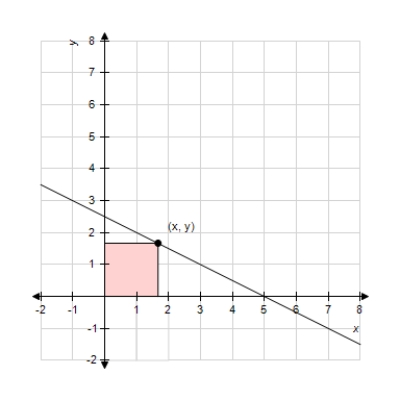
A)
B)
C)
D)
E)
 (see figure).What length and width should the rectangle have so that its area is a maximum?
(see figure).What length and width should the rectangle have so that its area is a maximum? 
A)

B)

C)

D)

E)


Unlock Deck
Unlock for access to all 147 flashcards in this deck.
Unlock Deck
k this deck
59
Assume that the amount of money deposited in a bank is proportional to the square of the interest rate the bank pays on this money.Furthermore,the bank can reinvest this money at  .Find the interest rate the bank should pay to maximize profit.(Use the simple interest formula. )
.Find the interest rate the bank should pay to maximize profit.(Use the simple interest formula. )
A)
B)
C)
D)
E)
 .Find the interest rate the bank should pay to maximize profit.(Use the simple interest formula. )
.Find the interest rate the bank should pay to maximize profit.(Use the simple interest formula. ) A)

B)

C)

D)

E)


Unlock Deck
Unlock for access to all 147 flashcards in this deck.
Unlock Deck
k this deck
60
The graph of a function f is is shown below. 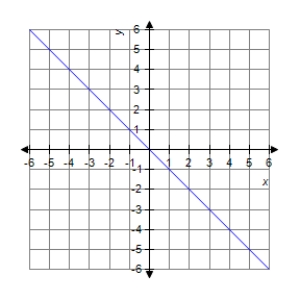
Sketch the graph of the derivative .
.
A)
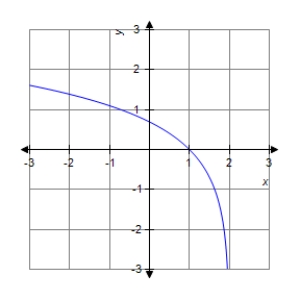
B)
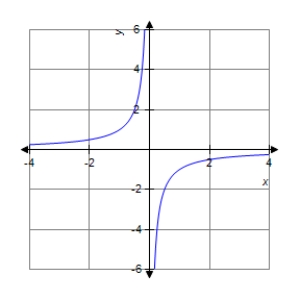
C)
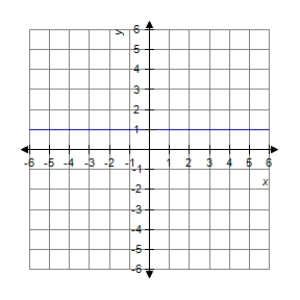
D)
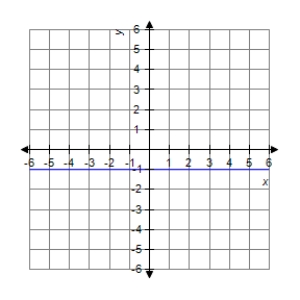
E)
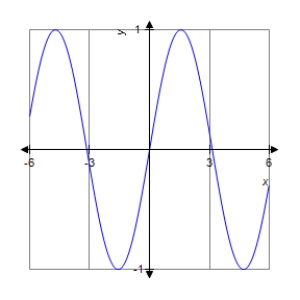

Sketch the graph of the derivative
 .
.
A)

B)

C)

D)

E)


Unlock Deck
Unlock for access to all 147 flashcards in this deck.
Unlock Deck
k this deck
61
Find the points of inflection and discuss the concavity of the function  on the interval
on the interval  .
.
A)no inflection points.concave up on
B)concave downward on ;concave upward on
;concave upward on
 ;inflection point at
;inflection point at

C)no inflection points.concave down on
D)concave upward on ;concave downward on
;concave downward on
 ;inflection point at
;inflection point at

E)none of the above
 on the interval
on the interval  .
. A)no inflection points.concave up on

B)concave downward on
 ;concave upward on
;concave upward on ;inflection point at
;inflection point at
C)no inflection points.concave down on

D)concave upward on
 ;concave downward on
;concave downward on ;inflection point at
;inflection point at
E)none of the above

Unlock Deck
Unlock for access to all 147 flashcards in this deck.
Unlock Deck
k this deck
62
Sketch a graph of the function  over the interval
over the interval  .
.
A)
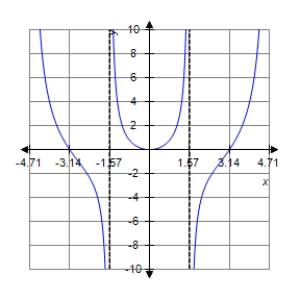
B)
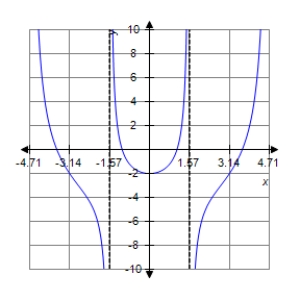
C)
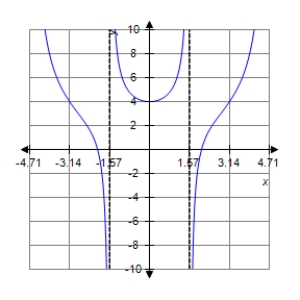
D)
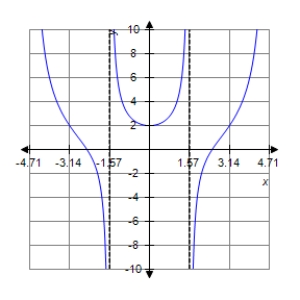
E)
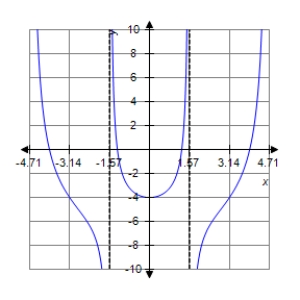
 over the interval
over the interval  .
. A)

B)

C)

D)

E)


Unlock Deck
Unlock for access to all 147 flashcards in this deck.
Unlock Deck
k this deck
63
Find the point of inflection of the graph of the function  on the interval
on the interval  .
.
A)
B)
C)
D)
E)
 on the interval
on the interval  .
. A)

B)

C)

D)

E)


Unlock Deck
Unlock for access to all 147 flashcards in this deck.
Unlock Deck
k this deck
64
Determine the open intervals on which the graph of  is concave downward or concave upward.
is concave downward or concave upward.
A)concave downward on ;concave upward on
;concave upward on

B)concave downward on ;concave upward on
;concave upward on

C)concave upward on ;concave downward on
;concave downward on

D)concave downward on ;concave upward on
;concave upward on

E)concave upward on ;concave downward on
;concave downward on

 is concave downward or concave upward.
is concave downward or concave upward. A)concave downward on
 ;concave upward on
;concave upward on
B)concave downward on
 ;concave upward on
;concave upward on
C)concave upward on
 ;concave downward on
;concave downward on
D)concave downward on
 ;concave upward on
;concave upward on
E)concave upward on
 ;concave downward on
;concave downward on

Unlock Deck
Unlock for access to all 147 flashcards in this deck.
Unlock Deck
k this deck
65
Sketch a graph of the function  over the interval
over the interval  .
.
A)
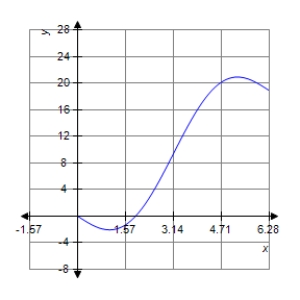
B)
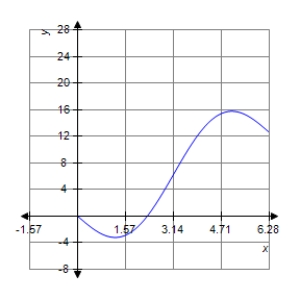
C)
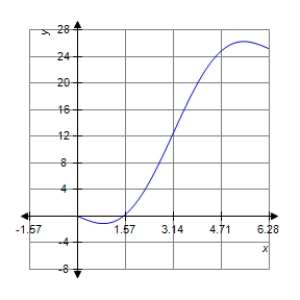
D)
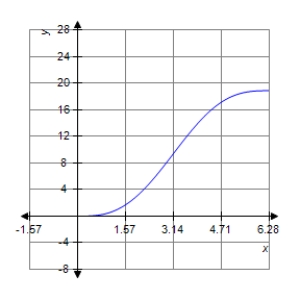
E)
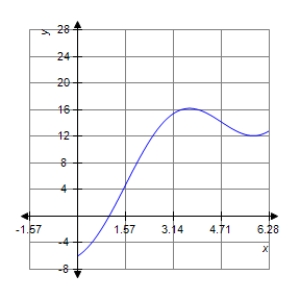
 over the interval
over the interval  .
. A)

B)

C)

D)

E)


Unlock Deck
Unlock for access to all 147 flashcards in this deck.
Unlock Deck
k this deck
66
Find all points of inflection on the graph of the function  .
.
A)
B)
C)
D)
E)
 .
. A)

B)

C)

D)

E)


Unlock Deck
Unlock for access to all 147 flashcards in this deck.
Unlock Deck
k this deck
67
The graph of f is shown below.For which values of x is  zero?
zero? 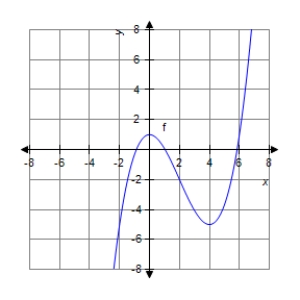
A)
B)
C)
D)
E)
 zero?
zero? 
A)

B)

C)

D)

E)


Unlock Deck
Unlock for access to all 147 flashcards in this deck.
Unlock Deck
k this deck
68
Determine the open intervals on which the graph of the function  is concave upward or concave downward.
is concave upward or concave downward.
A)concave upward: ;concave downward:
;concave downward:

B)concave upward: ;concave downward:
;concave downward:

C)concave upward: ;concave downward:
;concave downward:

D)concave upward: ;concave downward:
;concave downward:

E)concave upward: ;concave downward:
;concave downward:

 is concave upward or concave downward.
is concave upward or concave downward. A)concave upward:
 ;concave downward:
;concave downward:
B)concave upward:
 ;concave downward:
;concave downward:
C)concave upward:
 ;concave downward:
;concave downward:
D)concave upward:
 ;concave downward:
;concave downward:
E)concave upward:
 ;concave downward:
;concave downward:

Unlock Deck
Unlock for access to all 147 flashcards in this deck.
Unlock Deck
k this deck
69
Determine the open intervals on which the graph of  is concave downward or concave upward.
is concave downward or concave upward.
A)concave downward on
B)concave upward on ;concave downward on
;concave downward on

C)concave upward on ;concave downward on
;concave downward on

D)concave downward on ;concave upward on
;concave upward on

E)concave downward on ;concave upward on
;concave upward on

 is concave downward or concave upward.
is concave downward or concave upward. A)concave downward on

B)concave upward on
 ;concave downward on
;concave downward on
C)concave upward on
 ;concave downward on
;concave downward on
D)concave downward on
 ;concave upward on
;concave upward on
E)concave downward on
 ;concave upward on
;concave upward on

Unlock Deck
Unlock for access to all 147 flashcards in this deck.
Unlock Deck
k this deck
70
Analyze the graph of the function  .Determine any intercepts,relative extrema,points of inflection and asymptotes.Also determine where the graph is increasing or decreasing and concave up or concave down.Then identify the graph from the choices below.
.Determine any intercepts,relative extrema,points of inflection and asymptotes.Also determine where the graph is increasing or decreasing and concave up or concave down.Then identify the graph from the choices below.
A)
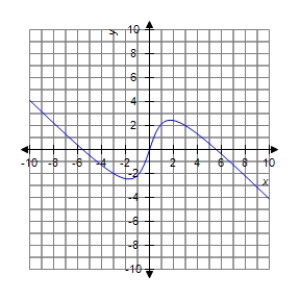
B)
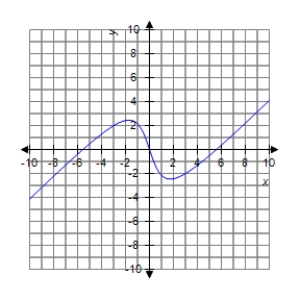
C)
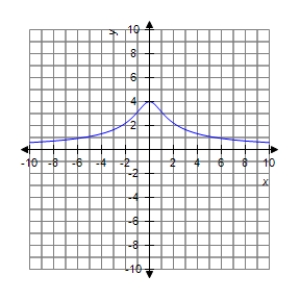
D)
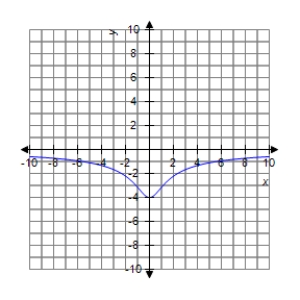
E)
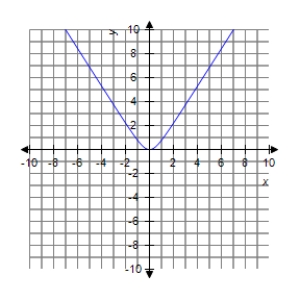
 .Determine any intercepts,relative extrema,points of inflection and asymptotes.Also determine where the graph is increasing or decreasing and concave up or concave down.Then identify the graph from the choices below.
.Determine any intercepts,relative extrema,points of inflection and asymptotes.Also determine where the graph is increasing or decreasing and concave up or concave down.Then identify the graph from the choices below. A)

B)

C)

D)

E)


Unlock Deck
Unlock for access to all 147 flashcards in this deck.
Unlock Deck
k this deck
71
Determine the open intervals on which the graph of the function  is concave upward or concave downward.
is concave upward or concave downward.
A)concave upward: ;concave downward:
;concave downward:

B)concave upward: ;concave downward:
;concave downward:

C)concave upward: ;concave downward:
;concave downward:

D)concave upward: ;concave downward:
;concave downward:

E)concave upward: ;concave downward:
;concave downward:

 is concave upward or concave downward.
is concave upward or concave downward. A)concave upward:
 ;concave downward:
;concave downward:
B)concave upward:
 ;concave downward:
;concave downward:
C)concave upward:
 ;concave downward:
;concave downward:
D)concave upward:
 ;concave downward:
;concave downward:
E)concave upward:
 ;concave downward:
;concave downward:

Unlock Deck
Unlock for access to all 147 flashcards in this deck.
Unlock Deck
k this deck
72
A valve on a storage tank is opened for 4 hours to release a chemical in a manufacturing process.The flow rate R (in liters per hour)at time t (in hours)is given by the linear model  .Write the linear model in exponential form.Round to four decimal places.
.Write the linear model in exponential form.Round to four decimal places.
A)
B)
C)
D)
E)
 .Write the linear model in exponential form.Round to four decimal places.
.Write the linear model in exponential form.Round to four decimal places. A)

B)

C)

D)

E)


Unlock Deck
Unlock for access to all 147 flashcards in this deck.
Unlock Deck
k this deck
73
The graph of f is shown below.On what interval is  an increasing function?
an increasing function? 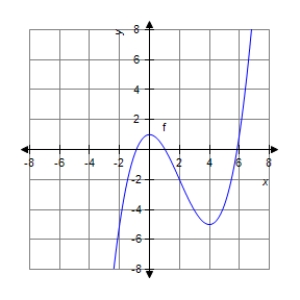
A)
B)
C)
D)
E)
 an increasing function?
an increasing function? 
A)

B)

C)

D)

E)


Unlock Deck
Unlock for access to all 147 flashcards in this deck.
Unlock Deck
k this deck
74
Determine the open intervals on which the graph of  is concave downward or concave upward.
is concave downward or concave upward.
A)concave upward on
B)concave downward on ;concave upward on
;concave upward on

C)concave downward on ;concave upward on
;concave upward on

D)concave downward on
E)concave upward on ;concave downward on
;concave downward on

 is concave downward or concave upward.
is concave downward or concave upward. A)concave upward on

B)concave downward on
 ;concave upward on
;concave upward on
C)concave downward on
 ;concave upward on
;concave upward on
D)concave downward on

E)concave upward on
 ;concave downward on
;concave downward on

Unlock Deck
Unlock for access to all 147 flashcards in this deck.
Unlock Deck
k this deck
75
Find all points of inflection,if any exist,of the graph of the function  .Round your answers to two decimal places.
.Round your answers to two decimal places.
A)
B)
C)
D)
E)no points of inflection
 .Round your answers to two decimal places.
.Round your answers to two decimal places. A)

B)

C)

D)

E)no points of inflection

Unlock Deck
Unlock for access to all 147 flashcards in this deck.
Unlock Deck
k this deck
76
Analyze and sketch a graph of the function  .
.
A)
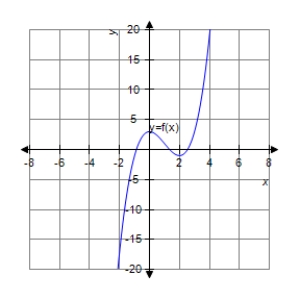
B)
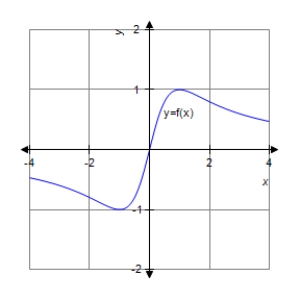
C)
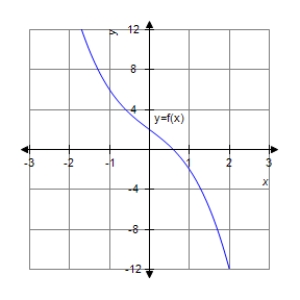
D)
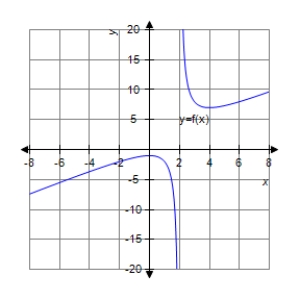
E)
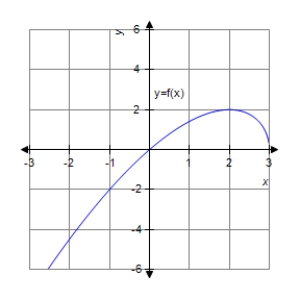
 .
. A)

B)

C)

D)

E)


Unlock Deck
Unlock for access to all 147 flashcards in this deck.
Unlock Deck
k this deck
77
Find the points of inflection and discuss the concavity of the function. 
A)inflection point at ;concave upward on
;concave upward on
 ;concave downward on
;concave downward on

B)inflection point at ;concave downward on
;concave downward on
 ;concave upward on
;concave upward on

C)inflection point at ;concave downward on
;concave downward on
 ;concave upward on
;concave upward on

D)inflection point at ;concave downward on
;concave downward on
 ;concave upward on
;concave upward on

E)inflection point at ;concave upward on
;concave upward on
 ;concave downward on
;concave downward on


A)inflection point at
 ;concave upward on
;concave upward on ;concave downward on
;concave downward on
B)inflection point at
 ;concave downward on
;concave downward on ;concave upward on
;concave upward on
C)inflection point at
 ;concave downward on
;concave downward on ;concave upward on
;concave upward on
D)inflection point at
 ;concave downward on
;concave downward on ;concave upward on
;concave upward on
E)inflection point at
 ;concave upward on
;concave upward on ;concave downward on
;concave downward on

Unlock Deck
Unlock for access to all 147 flashcards in this deck.
Unlock Deck
k this deck
78
The graph of f is shown below.For which value of x is  zero?
zero? 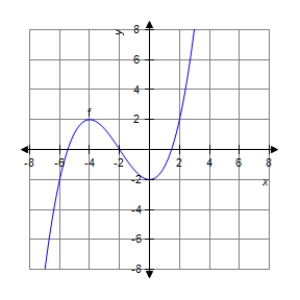
A)
B)
C)
D)
E)
 zero?
zero? 
A)

B)

C)

D)

E)


Unlock Deck
Unlock for access to all 147 flashcards in this deck.
Unlock Deck
k this deck
79
Find the points of inflection and discuss the concavity of the function  .
.
A)no inflection points;concave up on
B)no inflection points;concave down on
C)inflection point at ;concave up on
;concave up on

D)inflection point at ;concave up on
;concave up on
 ;concave down on
;concave down on

E)inflection point at ;concave down on
;concave down on

 .
. A)no inflection points;concave up on

B)no inflection points;concave down on

C)inflection point at
 ;concave up on
;concave up on
D)inflection point at
 ;concave up on
;concave up on ;concave down on
;concave down on
E)inflection point at
 ;concave down on
;concave down on

Unlock Deck
Unlock for access to all 147 flashcards in this deck.
Unlock Deck
k this deck
80
The graph of f is shown below.For which value of x is  minimum?
minimum? 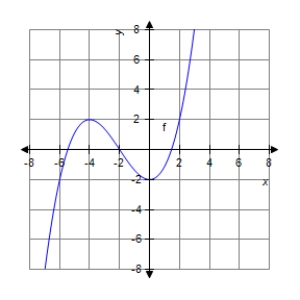
A)
B)
C)
D)
E)
 minimum?
minimum? 
A)

B)

C)

D)

E)


Unlock Deck
Unlock for access to all 147 flashcards in this deck.
Unlock Deck
k this deck


